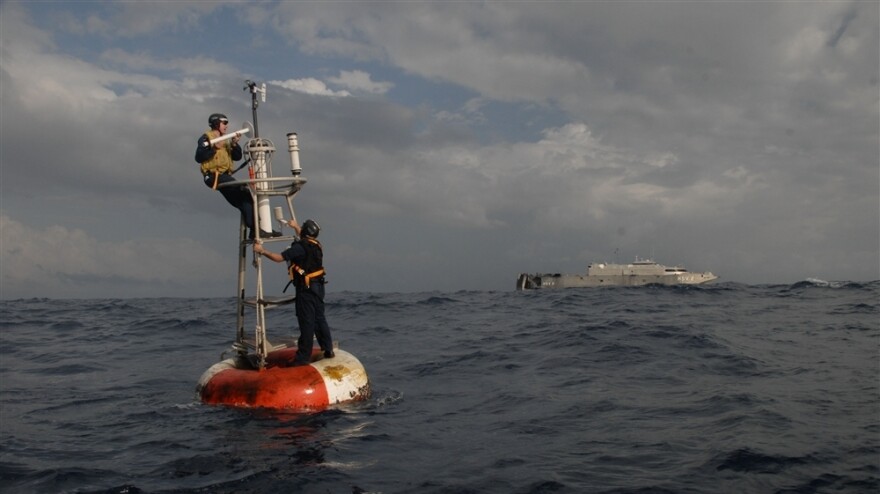Where is "science" this election season? It's everywhere and nowhere.
From the big race on down to local contests, we just haven't heard much talk about it during the campaign season that ends today. That's a pretty startling omission when you realize that almost all of the pressing, complex problems we face as a nation have roots in science and technology.
Don't believe me? Let's start with health care, where ever-more-powerful, ever-more-expensive technologies and drugs are one major reason for ever-spiraling costs. How about the economy and jobs? Since World War II science and technology have created at least half the U.S. economy's growth. And then, of course, there is the granddaddy of them all — climate.
Energy, national defense, and privacy issues: we have no shortage of problems rooted in science. Still, the only time science or technology appear in political debate are obvious platitudes about funding research and the need to boost grade-school-math education. We have lost our way on these issues. It's so bad that we can't even begin discussions on a topic, like climate, where the science is clear and its only role should be to frame debates over policy.
Our journey to this uncomfortable ambiguity about the national role of science holds an uncomfortable irony. The American experience has, essentially and always, been an American experiment. In that way we always understood our fates were bound to our commitment to science and the clarity it offers. That's what Benjamin Franklin believed. That is what Thomas Jefferson believed.
It was a commitment that was never partisan.
Abraham Lincoln, a Republican, was the president who created the National Academy of Sciences in 1863 so that science could guide the public good. Woodrow Wilson, a Democrat, expanded those efforts by creating the National Research Council in 1916. Eisenhower, a Republican, . Kennedy, a Democrat launched it on an epic quest to the moon. And it was Republican, Richard Nixon, who created one of our principal resources for understanding climate, the National Oceanic and Atmospheric Administration.
These leaders understood and acted on a national commitment to science that I can see firsthand when talking with non-scientists across the country. Americans remain inspired by the vision science provides. They remain thrilled by its promise of understanding and advancement. It is that promise that we must not abandon.
Politics is, of course, a battle over values, policies and the national interest. That is how it should be. But if politics erode how the nation values science then the interests being served can't possibly be our own.
You can keep up with more of what Adam Frank is thinking onFacebookand on Twitter:@AdamFrank4
Copyright 2021 NPR. To see more, visit https://www.npr.org. 9(MDA4NjIwNTkwMDEzMjI4NDY0MjY4ZTBlNA004))


